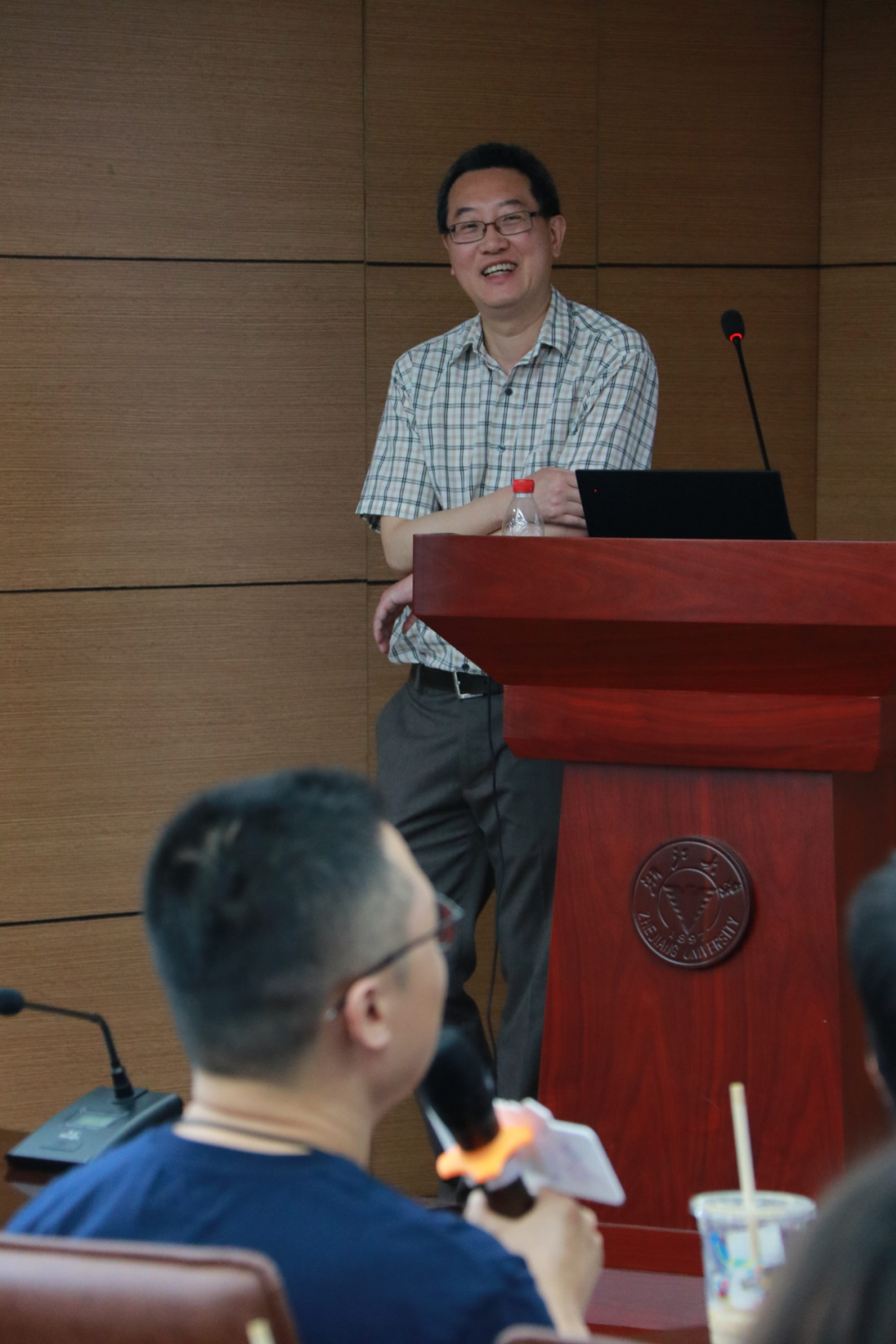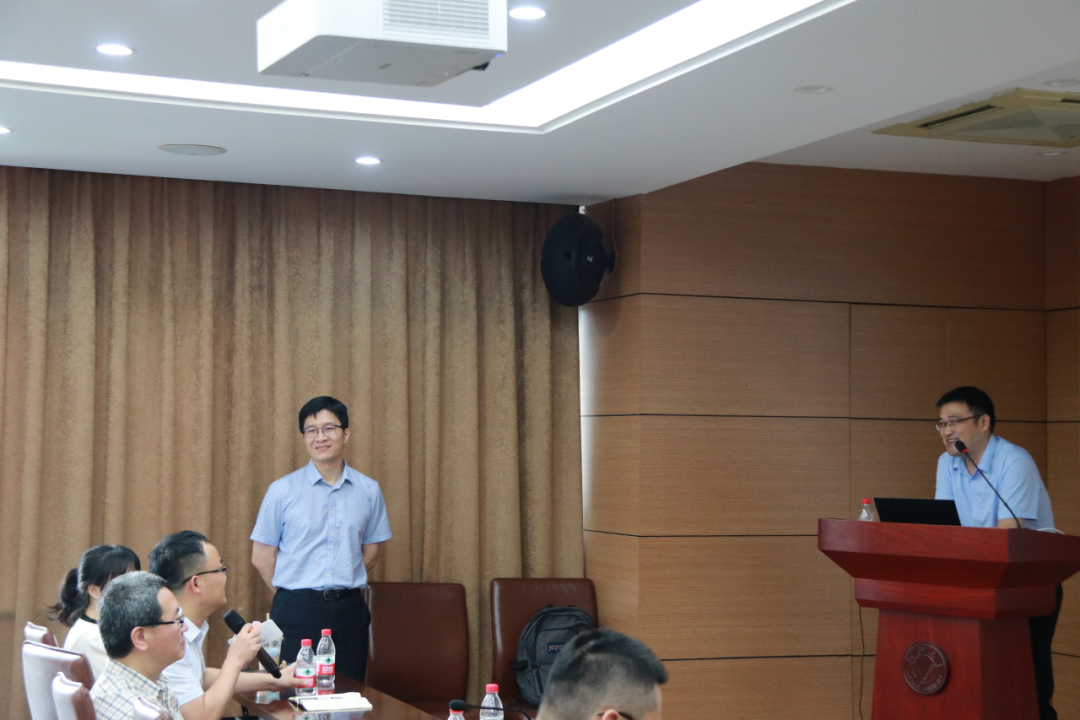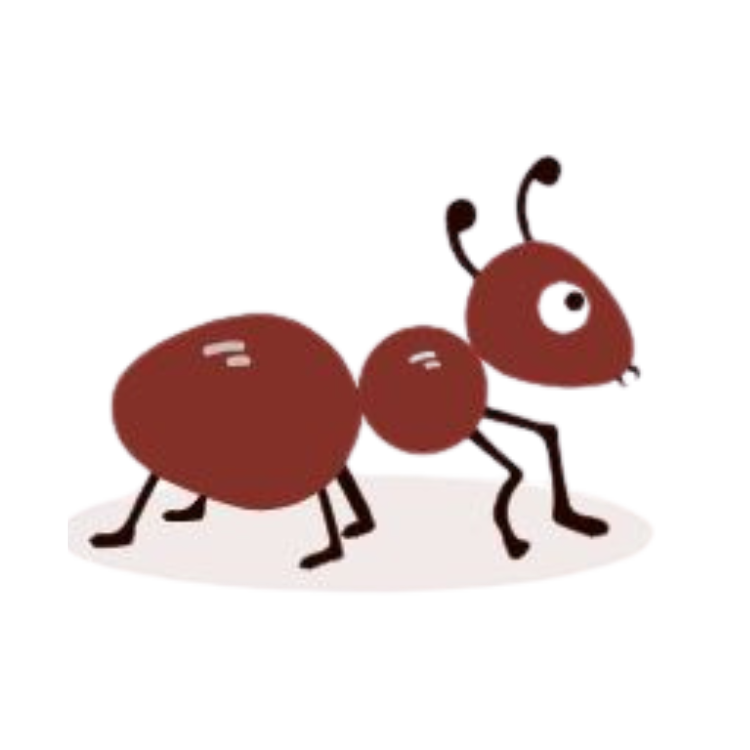06 / 30 / 2023
09:00 ~ 12:00
705, Comprehensive Building , School of Medicine
The whole school
Jianzhi Zhang: Revisiting the neutral theory of molecular evolution
Huabin Zhao: Animal diversity and molecular mechanisms of adaptive evolution
Wenfeng Qian: Utilizing a CRISPR-based toxin-antidote system to distort Mendelian inheritance in Arabidopsis
Piaopiao Chen: The loci of environmental adaptations in budding yeast
Back to List
On June 30th at 9:00 AM, a series of lectures were held in Room 705, Comprehensive Building, hosted by the School of Medicine and the Center for Evolutionary & Organismal Biology at Zhejiang University.
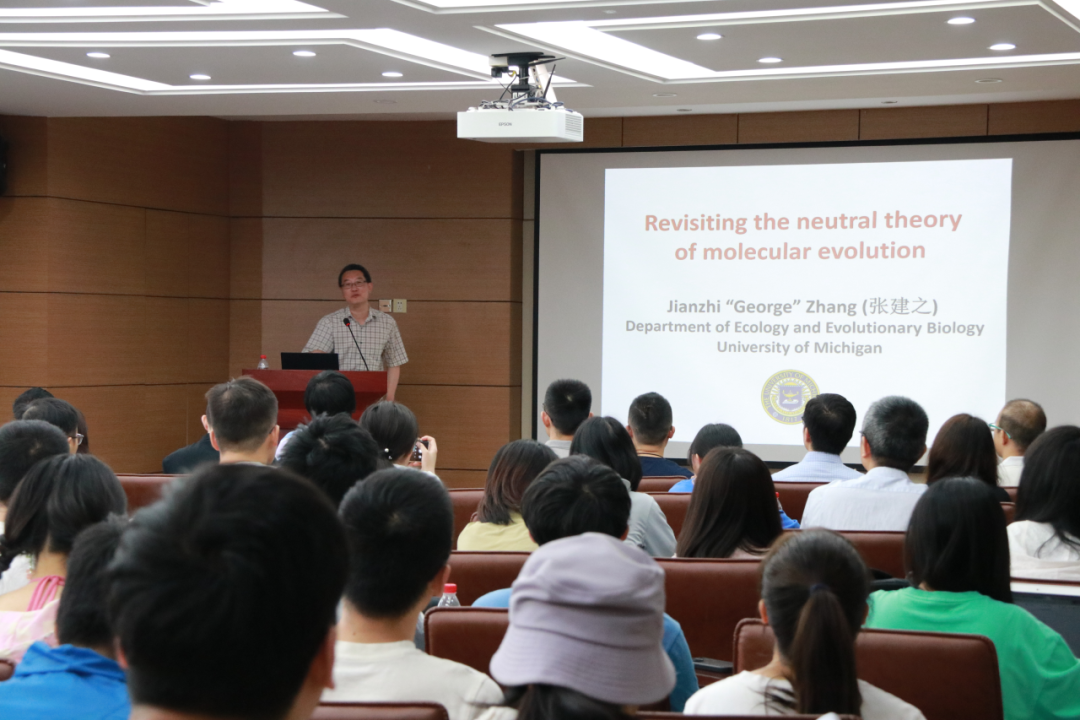
Jianzhi Zhang, a chair professor at the University of Michigan, has made pioneering contributions in various domains such as mammalian genome evolution, gene duplication, fitness landscapes, genetic structures (including gene pleiotropy and genetic interactions), transcriptome evolution, and synonymous codon usage. He has published over 200 papers in journals like Nature, Science, Nature Genetics, and PNAS, accumulating citations exceeding 25,000 as a corresponding author.
Firstly, Professor Jianzhi Zhang delivered a presentation titled "Revisiting the Neutral Theory of Molecular Evolution." Renowned in the field of evolution, Professor Zhang's team has made significant strides in research concerning the Neutral Theory and mutation rates, establishing a substantial international influence. During the presentation, Professor Zhang systematically elucidated the Neutral Theory of molecular evolution, combining the team's latest research findings to comprehensively outline Quasi-neutral molecular evolution.

Huabin Zhao, a professor at the School of Life Sciences at Wuhan University, serves as a doctoral supervisor in Zoology and Ecology. He's also the Department Chair of the Department of Ecology. He obtained his Ph.D. in Ecology from the Institute of Zoology, Chinese Academy of Sciences in 2009, followed by postdoctoral research in the Department of Ecology and Evolutionary Biology at the University of Michigan from 2009 to 2012. He joined Wuhan University in February 2012. As a corresponding author, he has published over 30 SCI papers in prestigious international journals such as Nature Ecology & Evolution, Science Advances, PNAS (3 papers), and Molecular Biology and Evolution (5 papers).
Then, Professor Huabin Zhao presented his research on "Animal Diversity and Adaptive Molecular Evolution." He shared discoveries regarding the functional evolution of taste genes in vertebrates and their role in the evolution of diverse diets. Additionally, he shed light on the molecular or genomic evolution associated with key traits in bats.
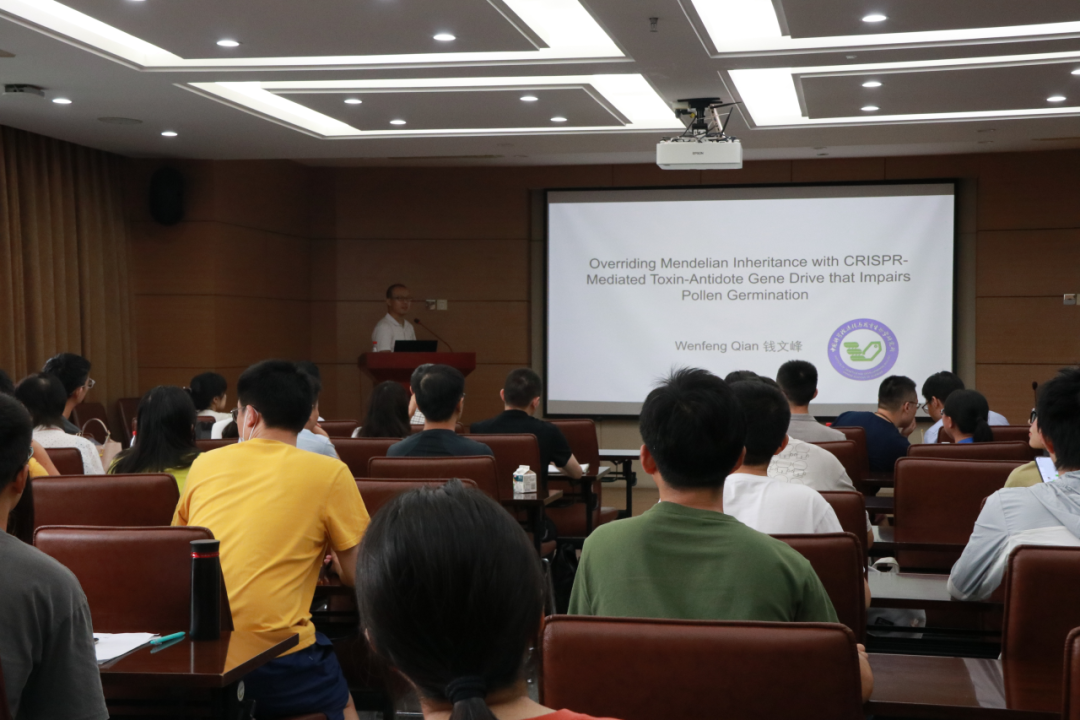
Dr. Wenfeng Qian obtained his Bachelor's degree from Peking University's School of Life Sciences in 2006 and completed his Ph.D. at the University of Michigan in 2012. In the same year, he joined the Institute of Genetics and Developmental Biology, Chinese Academy of Sciences. He was selected for the " Excellent Young Scientists Fund" in 2019. His research primarily focuses on systems biology and comparative genomics, with significant achievements in genome evolutionary mechanisms, single-cell transcriptomics, and translational genomics. Presently, he holds the position of Associate Editor for the Journal of Genetics and Genomics and serves as an editorial board member for Genome Biology and Evolution and eLife.
Later, Researcher Wenfeng Qian delivered a presentation titled "Utilizing a CRISPR-based toxin-antidote system to distort Mendelian inheritance in Arabidopsis," elucidating his recent work. He explained his exploration of non-Mendelian inheritance possibilities in Arabidopsis through gene editing using CRISPR/Cas9 technology.
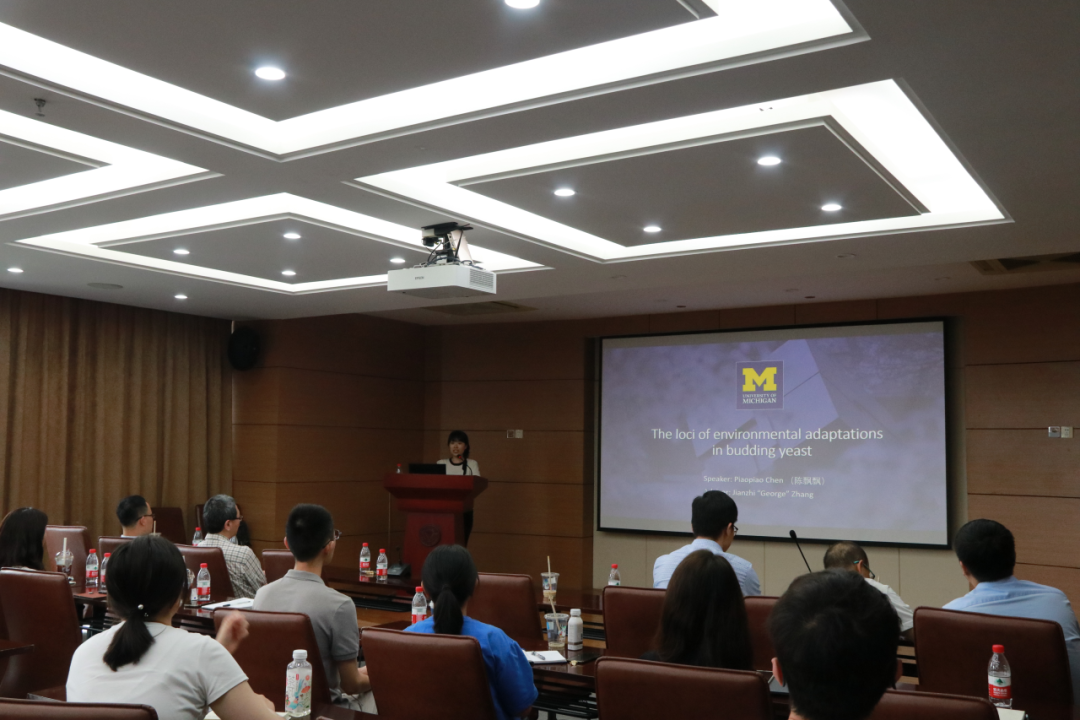
Piao Piao Chen obtained her Ph.D. from Sun Yat-sen University in 2017. That same year, she began her postdoctoral work at the Department of Ecology and Evolutionary Biology at the University of Michigan. Using budding yeast as a research model, she has made several groundbreaking contributions in the fields of gene essentiality and laboratory evolution. As a primary author, she has published numerous articles in journals such as Nature Ecology & Evolution, Nature Communications, Genome Research, and Molecular Biology and Evolution.
Finally, Dr. Piao Piao Chen presented a report titled "The loci of environmental adaptations in budding yeast," sharing her investigation using large-scale laboratory evolution methods to explore the characteristics of adaptive evolution genes in budding yeast across various environments.
Those brilliant presentations sparked active questioning and enthusiastic discussions among the attending faculty members and students.
